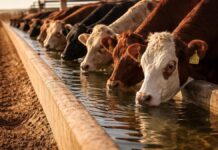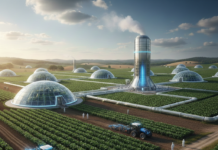Agriculture is the backbone of any country’s economy and sustains the livelihoods of its citizens; yet, food security for the county’s smallholder farmers is jeopardized by low yields of all main crops. Low productivity has been ascribed to diminishing soil fertility, climate change, insufficient extension support, restricted access to inputs, and inefficient agricultural techniques, all of which have resulted in vulnerable families.
Continuous and draining agricultural methods, as well as inadequate and ineffective soil amendment treatment, has resulted in poor soils that are unable to reach optimum production. Low output is caused by reduced nutrients in the soil as a result of years of monocropping and the continuous use of ineffective fertility enrichers. As a result, farmers may expect higher yields by following the principles of regenerative agricultural techniques.
The Benefits include:
Feeding the world
With nothing more than a quarter of all acreage, small farmers currently feed the world. Small farmers produce the majority of the world’s food, as is often believed today. But how many of us are aware that they are doing so with less than a quarter of the world’s cropland, and that even this small portion is rapidly dwindling? The world’s ability to feed itself will be harmed if small farmers continue to lose the fundamental basis of their existence.
Reduce CO2 emissions
The agriculture sector is one of the biggest emitters of CO2, the greenhouse gas (GHG) most responsible for the changes we are seeing in our climate today. Together with forestry and other land use, agriculture is responsible for just under 25 percent of all human-created GHG emissions.
A new food system could be a key driver of solutions to climate change. The current industrial food system is responsible for 44 to 57% of all global greenhouse gas emissions.
But it also has a vital role to play in helping us end this crisis, and create a safe, sustainable future without carbon pollution. One where we can provide our booming world population with fresh, healthy food grown in a sustainable soil ecosystem.








